Green technologies achieved at IPP went abroad and helped the developing countries to secure food supply
Learnt recently from the 8th Steering Committee of MoA-CABI Joint Laboratory affiliated at IPP, biological control-based integrated pest management (IPM) technologies developed by scientists at IPP went abroad and gained very good effects in Southeast Asia and Africa after extended and utilized there. This helped food secure in developing countries.
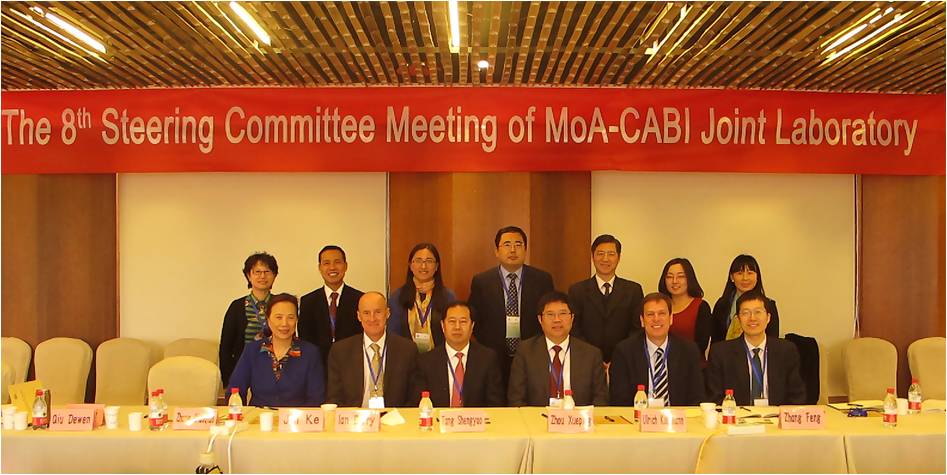
The 8th Steering Committee of MoA-CABI Joint Laboratory (Joint Lab) was successfully held in Beijing on 2-4 March. Mr. TANG Shengyao, the Deputy Director General of the Department of International Cooperation, Ministry of Agriculture (MoA), highly valued the achievements obtained at the Joint Lab and expected the Lab to further focus and serve the demands of the development strategy of agriculture in China. Mr. Tang pointed out that 2016 is the starting year of the 13th Five-Year Plan for China. The Government strongly advocates to extend pesticides with high efficacy, low toxicity and low residue, biological control and advanced machineries for chemical application and to promote the professional pest control system for large-scale pest prevention and green control. The amount of pesticide application will reach zero growth by year 2020. Hence, it is significant to convoke the 8th Steering Committee Meeting. Mr. Tang said that the Joint Lab should aim at the strategic demand of China and lay down the mid-term development plan (2016-2020). Endeavour should be made to establish a world-class R&D cooperation platform for transformation of green technologies in plant protection and biological control. Mr. Ian Barry, the Property Director of CABI thanked MoA, Chinese Academy of Agricultural Sciences (CAAS), and IPP for their long term support to the Joint Lab. CABI pays much attention to the direction of future development and the orientation of the Joint La. CABI would like to give full play to her own professional knowledge and technologies and the member countries and to promote the implementation of the mid-term plan of the Joint Lab Mr. JIN Ke, the Deputy Director General of the Department of International Cooperation, CAAS, expressed the support to the mid-term development plan of the Joint Lab on behalf of Academician WU Kongming, the Vice President of CAAS. He hoped that the Joint Lab actively took part in the implementation of the Silk Road Economic Belt and the 21st-Century Maritime Silk Road Initiative (the Belt and Road Initiative) and contributed to the establishment of the Center for International Agricultural Research, CAAS.
Director General ZHOU Xueping, IPP, and Dr. Ulrich KUHLMANN, CABI, reported on the work finished at Joint Lab in 2015 and work plan and budget for 2016. The Steering Committee listened to the reports and spoke highly of the work. The Steering Committee discussed the Mid-Term Development Plan of the Joint Lab and other important issues.
13 experts from both sides reported the progress and effectiveness of programs during the technical consultant meeting. The covered programs include the Belt and Road Plant Protection International Consortium (B&R-PPIC), Greater Mekong Subregion Rice and Maize IPM, Soil Pest Management in Rwanda, Plant Wise (China), Biological Control of Apolygus lucorum, Biological Control of Halyomorpha halys and Drosophila suzukii and Raise the Efficacy of Bio-pesticides against Locust. The Joint Lab has achieved significant effects on strengthening South-South cooperation and pushing on the mature green technologies in control of pests 'to step out of China'. Firstly, the bio-control based IPM technologies have been successfully integrated and demonstrated in rice and maize in Laos and Myanmar. 14 Trichogramma production factories were established in Laos and Myanmar by using the large scale Trichogramma rearing technique developed in China. The production of Trichogramma can cover approximately 10 thousand hectares of rice and maize. The demonstration acreage of the new techniques was 600 hectares. The trained local technicians and farmers were accumulatively over 10 thousand person-time. Secondly, the IPM of underground insect pests and the production technique of entomopathogenic nematodes were first modified and implemented in East Africa. A demonstration factory for large scale production of entomopathogenic nematodes was established in Rwanda. The entomopathogenic nematodes were applied on potato, cabbage and beans for IPM demonstration. More than 80 people, including personnel in research and extension and farmers, were trained. The transfer, extension and utilization of the bio-control based IPM technology offered not only the advanced techniques in plant protection and the idea of sustainable management to people in Laos, Myanmar and Rwanda and increased the yield and the income of the local farmers, but also bring closer the cooperation between IPP and CABI, Mekong Valley and East Africa countries and strengthened the leading role of China among developing countries in plant protection technology.
More than 30 leaders and experts attended the meeting. They include Mr. WANG Jinbiao, the Director of the Division of European Affairs, the Department of International Cooperation, MoA, Ms. CAO Ziwei, the Deputy Director of the Division of Resource and Environment, the Department of Science, Technology and Education, MoA, Dr. QIU Dewen, the Deputy Director General of IPP, Dr. CHEN Julian, the Director of the Department of International Cooperation and Graduate Student, IPP, Dr. WANG Lixia, the Deputy Director of the Department of International Cooperation and Graduate Student, IPP, Drs. WANG Zhenying, WAN Fanghao, HOU Maolin, LIU Wanxue, ZHANG Guifen, and PENG Deliang from IPP, Dr. ZHANG Qiaoqiao, the Director of the Department of Member Country Affairs, CABI, and Dr. ZHANG Feng, Director of East Asia Office, CABI, Dr. Stefan Toepfer from Switzerland, experts from Beijing Plant Protection Station, etc.
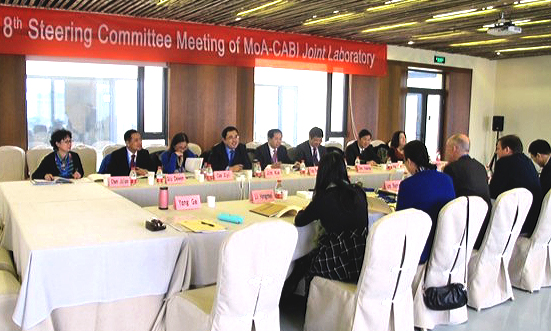
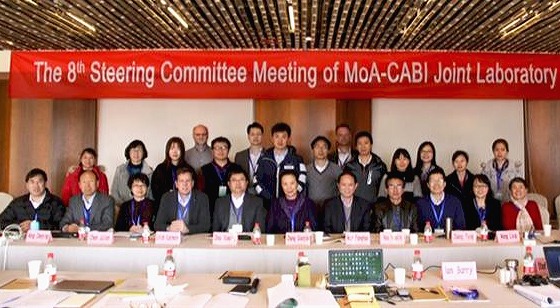
-
 China-Laos Training Workshop on Integrated Management of Destructive Crop Pests and Diseases Successfully held in Laos
China-Laos Training Workshop on Integrated Management of Destructive Crop Pests and Diseases Successfully held in Laos -
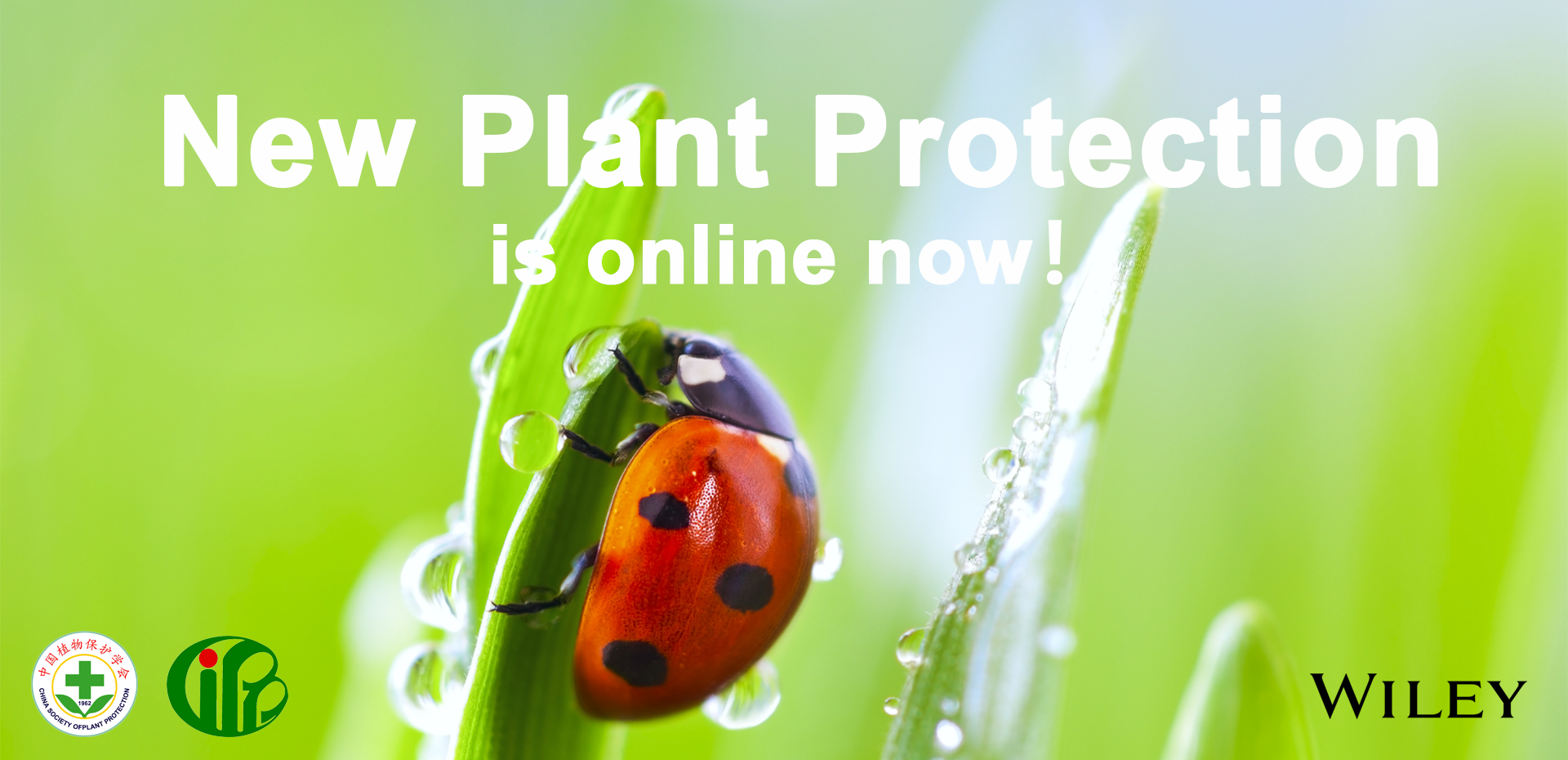 New Plant Protection: New challenge and new opportunity for plant protection
New Plant Protection: New challenge and new opportunity for plant protection -
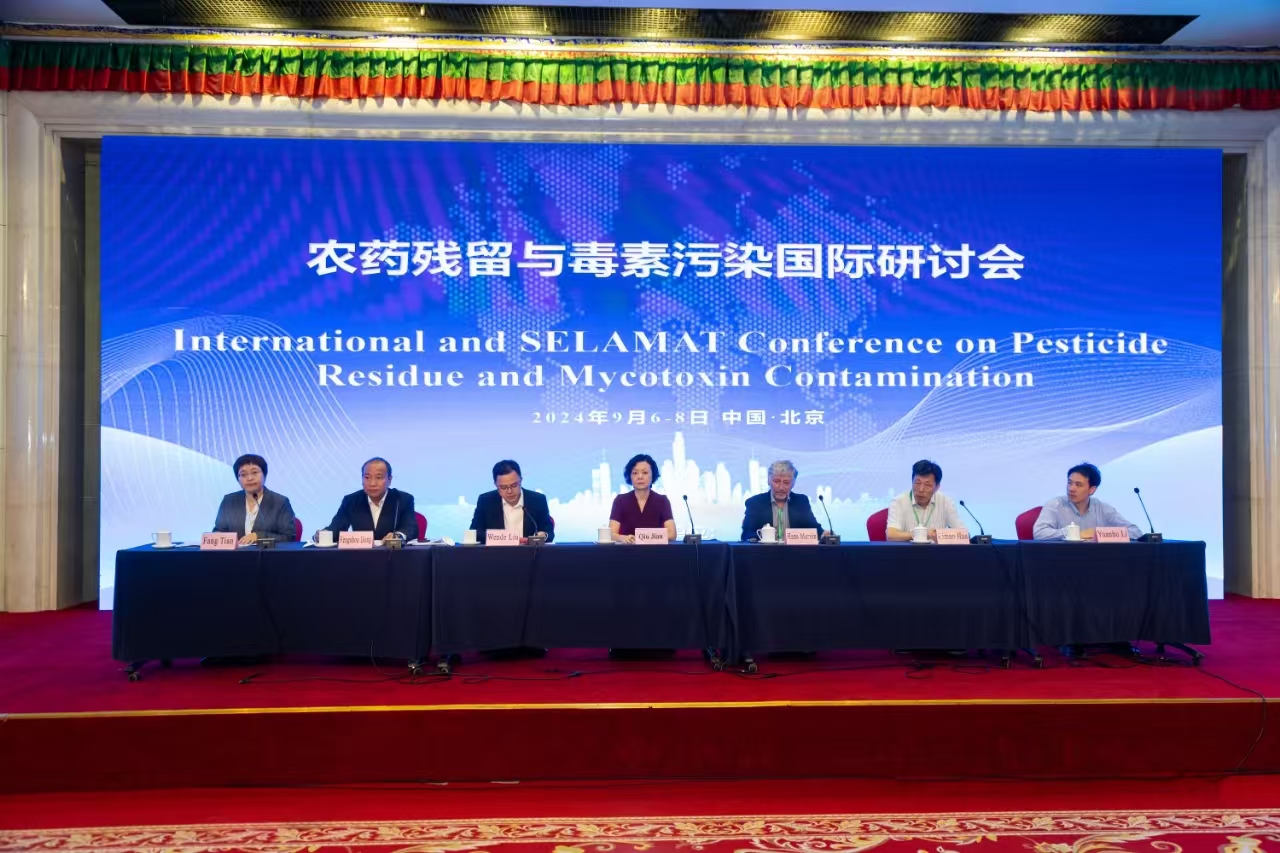 International and SELAMAT Conference on Pesticide Residue and Mycotoxin Contamination Held in Beijing
International and SELAMAT Conference on Pesticide Residue and Mycotoxin Contamination Held in Beijing -
 CAAS President Meets Chairman of ASEAN FAW Taskforce
CAAS President Meets Chairman of ASEAN FAW Taskforce
